Occupational Safety Training in Asphalt Manufacturing Factory
99,000 ₫
Note: The above price is calculated for one person and may fluctuate depending on the number of trainees participating in the course and market movements. For more accurate pricing support, please refer to the quotation table or contact our consulting staff directly.
Occupational safety is a critical issue in asphalt manufacturing factories and must be addressed promptly to ensure the health and safety of workers while enhancing the reputation of businesses. The Occupational Safety Training course is an effective solution to raise awareness among workers about accident prevention during asphalt manufacturing.
Table of Contents
Toggle1. Overview of asphalt
a. What is asphalt?
- Asphalt is a material widely used in road construction. It is manufactured by mixing various resins, fillers, and additives to create a flexible, malleable, and highly durable mixture. This mixture is then heated until it melts and is poured into molds to create road slabs.
- Asphalt has many advantages compared to other types of road surfaces, including high durability, waterproofing ability, high load-bearing capacity, and resistance to wear and tear from vehicles. It can also be constructed quickly and used immediately after completion.
- In recent times, the demand for asphalt in Vietnam has been increasing due to the development of the transportation and infrastructure manufacturing industry. However, there are also some issues that need to be addressed in the asphalt manufacturing industry, such as ensuring product quality and environmental protection.
- In addition, Vietnam is also developing new and environmentally friendly asphalt manufacturing technologies, such as using recycled materials to minimize the environmental impact of manufacturing.

b. Asphalt manufacturing machinery
The types of machinery and equipment for asphalt manufacturing usually include:
- Continuous plant: This equipment is used for continuous asphalt manufacturing, from mixing raw materials to packaging the product. It includes components such as a mixing tank, oil separation tank, aeration tank, filter tank, batching tank, product storage tank, and an automatic control system.
- Mixing plant: The mixing plant is used to mix asphalt materials with fillers and additives to create a homogeneous asphalt mixture with the correct specified viscosity. Mixing plants often have the ability to mix and manufacture asphalt with different capacities, depending on customer needs.
- Paver machine: The paver machine is used to pour and compact the asphalt layer onto the road surface. This machine can be controlled manually or by computer, helping to ensure that the amount of asphalt poured is at the required thickness and width.
- Road cutter: The road cutter is used to cut the old road surface to prepare for the process of pouring a new asphalt layer. This machine can be used to cut the road using a cutting blade or a road saw.
- Road marking machine: The road marking machine is used to create lines on the road surface with paint or other materials. This machine can be controlled manually or by computer, helping to ensure that the width and depth of the lines are correct.

c. Typical asphalt manufacturing enterprises in Vietnam
Currently, there are many asphalt manufacturing companies in the Vietnamese market, but some of the most prominent ones include:
- Vinaconex Real Estate and Traffic Equipment Construction Joint Stock Company: This is one of the leading companies in the field of asphalt manufacturing and supply in Vietnam. The company uses advanced technology, modern machinery, and a professional staff to manufacture high-quality asphalt.
- Ha Noi Investment and Construction No. 1 Joint Stock Company: This is one of the leading companies in Vietnam in the field of asphalt manufacturing and supply. The company uses advanced technologies and modern machinery to manufacture high-quality asphalt.
- Viet Nam Rubber Industry Joint Stock Company: This is one of the largest asphalt manufacturing companies in Vietnam with over 50 years of experience in the field of asphalt manufacturing and supply. The company uses advanced technology and modern machinery to manufacture high-quality asphalt.
- Tan Van Loi Investment and Construction Joint Stock Company: This is one of the asphalt manufacturing companies in Vietnam, with an experienced staff and a highly skilled technical team, the company is committed to providing high-quality asphalt and meeting customer needs.
- Petroleum Manufacturing and Trading Joint Stock Company: This is one of the large asphalt manufacturing companies in Vietnam, with an experienced staff and modern machinery to manufacture high-quality asphalt.
Above are some typical asphalt manufacturing companies in Vietnam. However, this list is not exhaustive and there are still many other companies operating in this field.
d. Specific jobs in an asphalt manufacturing factory
Group 1
- Executive director, deputy executive director, head of department in an asphalt manufacturing factory.
Group 2
- Safety officer: manages safety in the factory, designs safety procedures, supervises and urges employees to comply with safe work procedures.
Group 3
- Raw material pre-processing: This is the first stage in the asphalt manufacturing process, where the main raw material, crude oil, is processed to create a thick substance. Raw material pre-processing jobs include oil filtering, oil division, combustion, gas separation, exhaust gas treatment, and collection of by-products.
- Asphalt mixing and manufacturing: After the raw materials are pre-processed, they will be mixed with chemicals to create a thick substance. Then, the thick substance will be dissolved and mixed with asphalt to create the final product. Jobs in this stage include operating the mixing system, quality control, temperature adjustment, optimizing the manufacturing process, and operating machinery.
- Packaging and transportation: After the products are manufactured, they will be packaged in containers for protection and transported to customer units. Jobs in this stage include quality control, product packaging, label printing, arrangement, and transportation.
- Maintenance and repair: The asphalt manufacturing factory needs to be maintained and repaired periodically to ensure that the machinery operates stably and the manufacturing process is optimized. Maintenance and repair jobs include inspecting, cleaning, and replacing machine parts, repairing arising faults, and upgrading equipment to improve performance.
- Manufacturing management: This is an important job to ensure that the manufacturing process runs smoothly, is optimized, and achieves the desired product quality. Manufacturing management jobs include manufacturing planning, raw material management, monitoring the manufacturing process, quality control, and supervising the activities of employees and machinery.
Group 4
- Office jobs, services, sales, marketing.
- Manufacturing management, quality management, human resource management, material management, financial accounting management.
- Research and development of new products

2. Overview of the asphalt manufacturing occupational safety training course
In the scope of this article, we focus on issues related to group 3, because group 3 is the group directly involved in the manufacturing process, bearing the highest risk of occupational safety. Refer to other groups here
a. What is group 3 occupational safety training?
- Occupational safety training for group 3 consists of sessions that provide awareness on how to prevent workplace accidents for employees.
- The occupational safety training course will help employees recognize and prevent dangers, and limit the risks of workplace accidents during work.
REGISTER FOR OCCUPATIONAL SAFETY TRAINING SERVICES
b. Training duration
Initial safety training duration
- The total training duration is at least 24 hours, including examination time.
- 8 hours of theoretical study on the system of policies and laws on occupational safety and hygiene
- 8 hours of theoretical study on basic knowledge of occupational safety and hygiene
- 4 hours of theoretical study on specialized training content
- 2 hours of practical training on specialized training content
- 2 hours of theoretical examination at the end of the training course
The safety training center will distribute the time into multiple training sessions depending on the time arrangement for employees. But normally, there will be 6 training sessions, the course will take place in 3 days, provided that the manufacturing company can arrange continuous study time.
Periodic safety training duration
- Before the occupational safety card expires, if employees want to have it re-issued, they must undergo a periodic occupational safety training course, with a periodic safety training duration of at least 50% of the initial safety training duration.
Explanation: the total periodic occupational safety training duration is at least 12 hours, including examination time. After completing the periodic training course and passing the test, the employee will be re-issued or have their occupational safety card renewed.
c. Content of the training course
| No. | TRAINING CONTENT | TRAINING DURATION (HOURS) | |||
| Total | Of which | ||||
| Theory | Practice | Examination | |||
| I | System of policies and laws on occupational safety and hygiene | 8 | 8 | 0 | 0 |
| 1 | Overview of the system of legal documents on occupational safety and hygiene. | 6 | 6 | ||
| 2 | System of technical standards and regulations on occupational safety and hygiene. | 1 | 1 | ||
| 3 | Specific regulations of state management agencies on occupational safety and hygiene when newly building, expanding, or renovating facilities for manufacturing, using, preserving, storing, and inspecting machines, equipment, materials, and substances with strict requirements for occupational safety and hygiene. | 1 | 1 | ||
| II | Basic knowledge of occupational safety and hygiene | 8 | 8 | 0 | 0 |
| 1 | Basic knowledge of dangerous and harmful factors at the workplace. | 4 | 4 | ||
| 2 | Methods for improving working conditions. | 1 | 1 | ||
| 3 | Safety culture in manufacturing and business. | 1 | 1 | ||
| 4 | Rights and obligations of employers and employees; policies and regimes on occupational safety and hygiene for employees; functions and duties of the occupational safety and hygiene network. | 1 | 1 | ||
| 5 | Occupational safety and hygiene regulations, signs, safety and hygiene signs and use of safety equipment, personal protective equipment; first aid skills for occupational accidents, prevention of occupational diseases. | 1 | 1 | ||
| III | Specialized training content | 6 | 4 | 2 | 0 |
| General knowledge about types of machines, equipment, and substances that generate dangerous and harmful factors; analysis, assessment, management of risks related to occupational safety and hygiene, safe working procedures with machines, equipment, and substances with strict requirements for occupational safety and hygiene. | 6 | 4 | 2 | ||
| IV | Examination of occupational safety training content at the end of the course | 2 | 2 | 0 | 0 |
| Total | 24 | 22 | 2 | ||
See more training content of 6 groups
d. Occupational safety card
After completing the occupational safety training course and passing the test, the employee will be issued an occupational safety card (in practice, also called the group 3 occupational safety certificate).
The group 3 safety card will clearly show information such as: full name, date of birth, specific job and working environment. It also has the training duration, a red stamp, and a signature confirming the completion of the training course.
According to the regulations on issuing safety cards specified in clause 2 of article 24 of decree 44/2016/ND-CP, there are 2 cases:
- If the employer and the employee have a labor contract with each other, the employer must sign, stamp, and initial the safety card for the trained person in group 3 after they have gone through the training course from the occupational safety training unit and passed the test.
- If the employee is a freelancer, seasonal worker, and does not have a labor contract, the training unit must sign, stamp, and initial the safety card for the employee after they have gone through the training course from the occupational safety training unit and passed the test.

3. Identifying dangers affecting employees when manufacturing asphalt
Asphalt manufacturing has many dangers that affect the health and safety of employees, including:
- Because the asphalt manufacturing process involves combustion activities, the risk of fire and explosion always exists. Asphalt manufacturing personnel need to be trained to prevent and handle situations when there is a fire or explosion incident.
- The asphalt manufacturing process often causes air pollution due to exhaust gases from combustion systems and the mixing process. Toxic gases such as CO2, SO2, CO, NOx can cause serious health problems such as headaches, shortness of breath, pneumonia, and cancer.
- Because asphalt manufacturing involves combustion activities and working with high temperatures, the risk of burns always exists. Asphalt manufacturing personnel need to be equipped with protective equipment and trained to ensure safety during the working process.
- Asphalt manufacturing involves working with large and dangerous machinery, so the risk of occupational accidents always exists. Asphalt manufacturing personnel need to be trained to use protective equipment and ensure safety during the working process.
- The chemicals used in the asphalt manufacturing process can pose a risk of chemical poisoning, affecting the health and safety of employees. Asphalt manufacturing personnel need to be trained to use protective equipment and stay safe during the working process.
4. Common types of occupational accidents for employees when manufacturing asphalt
Common occupational accidents that occur during the asphalt manufacturing process include:
- Burns: When manufacturing asphalt, employees often work with high temperatures and toxic chemicals. The risk of burns is very high, especially when not using the correct protective equipment.
- Injuries from collisions and falling objects: The machinery and equipment in an asphalt manufacturing factory are often very large and heavy, and moving them can cause accidents to manufacturing personnel.
- Chemical poisoning: The chemicals used in the asphalt manufacturing process can cause chemical poisoning to manufacturing personnel. Not using the correct protective equipment or not using chemicals correctly can also cause danger.
- Fire and explosion incidents: Asphalt manufacturing requires combustion activities, so fire and explosion incidents are always a potential risk. Not ensuring safety when handling fire and explosion incidents can cause loss of life and property.
- Electric shock: Some electrical equipment is used in an asphalt manufacturing factory, and improper use can cause electrical accidents.
5. Safety measures when participating in asphalt manufacturing
To ensure safety during the asphalt manufacturing process, safety measures that need to be implemented include:
- Using protective equipment: This is the most important factor to protect employees from occupational accidents and other dangers during the asphalt manufacturing process. Protective equipment includes safety helmets, safety glasses, gloves, protective clothing, safety shoes, face masks, etc.
- Ensuring machine safety: The machinery and equipment in an asphalt manufacturing factory need to be inspected and maintained periodically to ensure safety when in use.
- Training employees: Manufacturing personnel need to be trained on occupational safety and how to use protective equipment correctly to ensure safety when working.
- Using chemicals correctly: The chemicals used in the asphalt manufacturing process need to be stored, handled, and used correctly to avoid danger to employees.
- Ensuring fire and explosion safety: The manufacturer needs to implement measures to ensure fire and explosion safety during the asphalt manufacturing process, including inspecting and maintaining the fire fighting system, monitoring the scene to detect early signs of abnormalities, etc.
- Performing periodic safety inspections: The manufacturer needs to perform periodic safety inspections to ensure that safety measures are implemented correctly and safety is ensured during the manufacturing process.
- Periodically organize workplace environmental monitoring in the factory and enterprise, collect and analyze harmful factors to employees, thereby adjusting to reduce the level of harm to prevent occupational diseases for them.

6. Benefits of asphalt manufacturing occupational safety training
An Toan Nam Viet provides businesses with great benefits after completing occupational safety training courses in accordance with the regulations in Decree 44/2016/ND – CP on Occupational Safety and Hygiene work, for companies and enterprises.
- Employees can recognize the potential risks of occupational accidents and take preventive measures to avoid them.
- Your business can establish risk prevention measures in the manufacturing, operation, and maintenance processes.
- Minimize costs when there is a risk of occupational unsafety.
- An uninterrupted manufacturing process will help increase labor productivity and product quality.
- Comply with occupational safety laws, avoiding legal risks.
- Create credibility and professionalism in all aspects, thereby enhancing the brand for your business.
Nam Viet’s training courses are a solution to prevent and combat external factors affecting each individual so that they can avoid dangers that can lead to injury or, more seriously, death.
REGISTER FOR OCCUPATIONAL SAFETY TRAINING SERVICES
7. Customer feedback after completing the asphalt manufacturing occupational safety training course
An Toan Nam Viet has many years of experience in the mission of accompanying many enterprises in Vietnam in general and in the southern provinces in particular. And that responsibility is something extremely valuable to Nam Viet, which is why Nam Viet’s Occupational Safety Training is always focused on becoming more and more professional. And the motivation for An Toan Nam Viet to grow strongly to date comes from the positive feedback and suggestions from businesses. Below are the feedback from our valued partners whom we have served.
Bac Nam E&C Investment and Construction Joint Stock Company
“The first time I used the service at An Toan Nam Viet, I was very surprised by the enthusiastic 24/7 support of the team of consultants. The class organization was very quick and convenient for our company, thank you very much for Nam Viet’s service!”
Hoa Dat Construction and Trading Joint Stock Company
“Nam Viet’s service has helped us a lot in simplifying occupational safety and the work of completing safety records to serve the working process. The team of consultants is enthusiastic and timely in answering our questions. 5 stars for Nam Viet”
See more customer interviews after using An Toan Nam Viet’s services
8. Occupational Safety Training Competence of An Toan Nam Viet
An Toan Nam Viet is a reputable and quality occupational safety training center in Vietnam today. With continuous occupational safety training sessions taking place at manufacturing workshops, factories, or construction sites across the country (63 provinces and cities in Vietnam).
REGISTER FOR OCCUPATIONAL SAFETY TRAINING SERVICES
License for occupational safety training
- An Toan Nam Viet has been inspected and granted a certificate of eligibility for occupational safety and hygiene training activities by the Occupational Safety Department of the Ministry of Labor – Invalids and Social Affairs. This further strengthens our occupational safety training competence.

Documents and lectures
- Before the occupational safety training documents are put into the occupational safety training courses, they have been reviewed and censored to ensure that the lectures are always correct in terms of knowledge and effective when applied.
- The teaching method of the lecturers is synchronized according to the teaching standards of An Toan Nam Viet, which is a method that experts in occupational safety and hygiene training have researched and summarized during the teaching process to bring the highest knowledge acquisition efficiency for trainees.
Facilities
- Controlling the factors in the classroom that affect the training process will increase teaching efficiency and the effectiveness of trainees’ knowledge acquisition.
- The facilities supporting our training course always have spacious classrooms that meet standards for area, lighting, training equipment, etc.
9. Reputable and quality safety training center nationwide
At An Toan Nam Viet, we always prioritize the professional dedication to occupational safety training. For us, imparting knowledge on how to protect oneself to workers so that they have a safe journey on their path to earning a living is contributing to building the country.
To ensure the effectiveness of the training, we prepare carefully and meticulously every little detail, even the smallest. From preparing tools, equipment, teaching devices to textbooks, documents, sound, and lighting.
Our occupational safety training lecturers are experts with many years of experience in the field. They even have research projects identifying dangers in all occupations and how to prevent them.
The lecturers’ lectures are distilled from practice and conveyed in a lively and easiest-to-imagine way for employees. These factors help employees feel comfortable during their study time and absorb our teaching knowledge well. Of course, the knowledge conveyed always closely follows decree 44/2016/ND-CP.
From there, they grasp many measures to prevent dangers and how to protect themselves. At the same time, they also apply it in the most appropriate way in their actual work.
Our safety training center is proud to be a reputable and professional provider of occupational safety training services with the following advantages:
- Competitive training costs but training quality is still ensured.
- The training schedule is flexible with the production situation of the business company.
- The procedure for occupational safety training certificate is fast and in accordance with the law.
- The training lecturers are people with many years of experience in the profession.
- The classroom is controlled for factors affecting the training process, increasing teaching efficiency and the effectiveness of trainees’ knowledge acquisition.
- The lectures are compiled to be suitable for occupational safety work at enterprises.
- An Toan Nam Viet works with dedication and professionalism to support customers accurately and quickly.

10. Additional References for Occupational Safety Training in Asphalt Production
- Occupational Safety Documents for Asphalt Production
- Occupational Safety Training Document Set
- Occupational Safety Training Test Set
- Occupational Safety Multiple-Choice Test for Asphalt Production
- Slides for Occupational Safety Training in Asphalt Production
1 review for Occupational Safety Training in Asphalt Manufacturing Factory
No comments yet

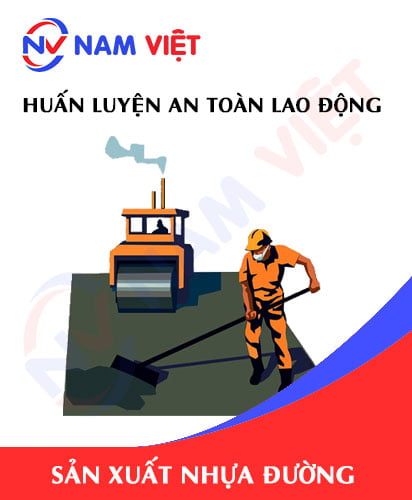


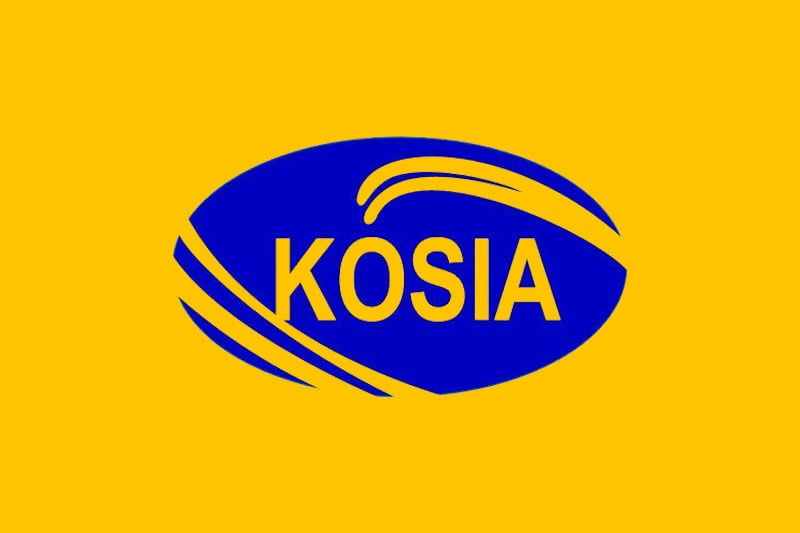
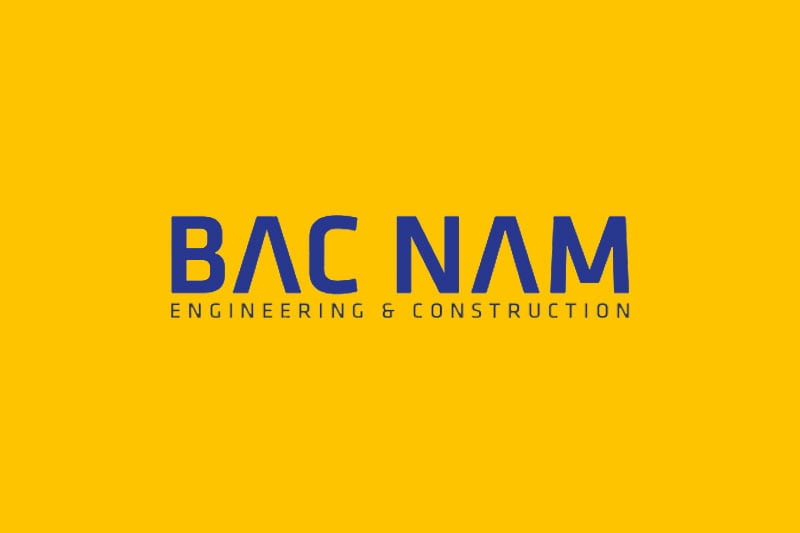


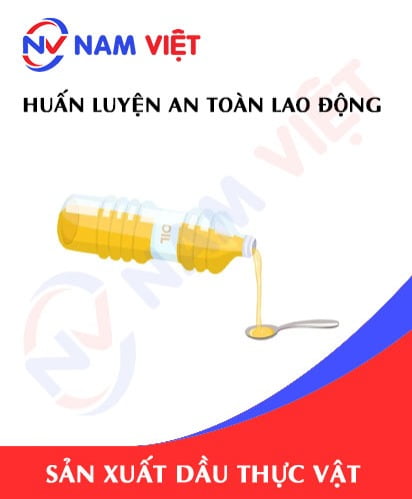
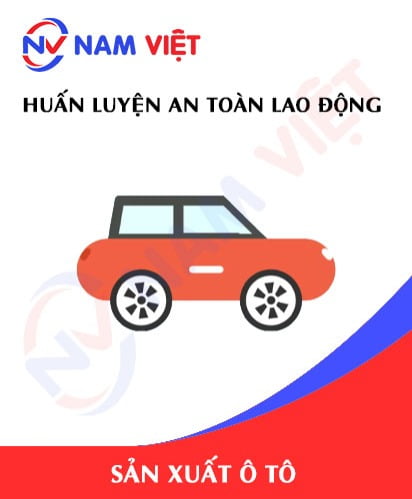




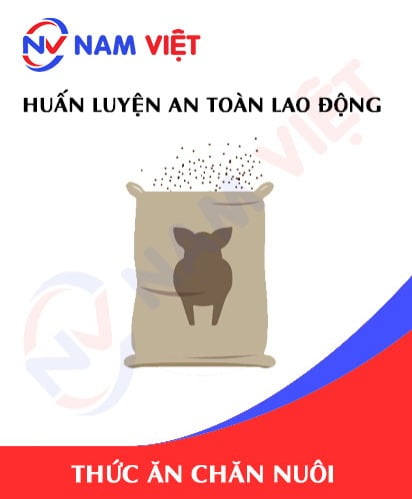
namchinh.haiphong341
Dịch vụ ở đây tốt nhé!